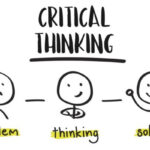Blockchain technology burst onto the scene with the rise of cryptocurrencies, most notably Bitcoin. However, its potential extends far beyond digital currencies. Blockchain has the power to revolutionize various industries by enhancing transparency, security, and efficiency. From transforming supply chains to improving healthcare systems, let’s explore the diverse applications of blockchain technology in today’s world.
Understanding Blockchain
At its core, a blockchain is a decentralized and distributed digital ledger that records transactions in a secure and transparent manner. It consists of a chain of blocks, each containing a set of transactions. These blocks are linked using cryptographic hashes, ensuring data integrity and making it extremely difficult to alter or tamper with the information.
Blockchain in Supply Chain Management
One of the most promising applications of blockchain is in supply chain management. By providing an immutable and transparent record of each step in the supply chain, blockchain enhances traceability and reduces fraud. Companies can track the origin of products, verify authenticity, and ensure compliance with regulations. This is particularly crucial for industries like agriculture, where consumers demand information about the journey of their food from farm to table.
Healthcare: Data Security and Interoperability
In the healthcare sector, blockchain addresses critical issues such as data security and interoperability. Patient records stored on a blockchain are encrypted and can only be accessed by authorized parties. This enhances patient privacy and reduces the risk of data breaches. Moreover, blockchain’s distributed nature enables different healthcare providers to access and update patient information seamlessly, improving coordination and patient care.
Financial Services: Streamlining Transactions
While blockchain’s origins are closely tied to cryptocurrencies, its impact on financial services is more extensive. Blockchain’s ability to facilitate secure, fast, and transparent transactions can streamline processes such as cross-border payments, trade finance, and remittances. Smart contracts—self-executing contracts with terms directly written into code—automate and validate transactions, reducing the need for intermediaries.
Real Estate: Transparent Transactions
Real estate transactions often involve multiple intermediaries and lengthy processes. Blockchain can simplify this by digitizing property titles and recording ownership changes on an immutable ledger. This reduces the risk of fraud, accelerates transaction times, and increases transparency in property markets.
Digital Identity and Voting Systems
Blockchain offers a potential solution to digital identity challenges. Individuals could have control over their personal data, granting access to specific attributes only when necessary. Additionally, blockchain’s tamper-proof nature could revolutionize voting systems, enhancing security and reducing the risk of electoral fraud.
Environmental Impact: Sustainability and Energy Management
Blockchain’s transparency and traceability can play a pivotal role in promoting sustainability. By tracking the origins of products, consumers can make more informed choices about their purchases. Additionally, blockchain-powered systems can optimize energy usage by creating decentralized networks for energy trading and management.
Challenges and Future Prospects
Despite its vast potential, blockchain technology faces challenges such as scalability, energy consumption, and regulatory hurdles. However, ongoing research and development are addressing these issues, and as the technology matures, its impact is likely to grow even further.
Conclusion
Blockchain’s journey from the realm of cryptocurrencies to a wide array of industries showcases its transformative potential. As businesses and organizations recognize the benefits of transparency, security, and efficiency, they are harnessing blockchain’s power to revolutionize supply chains, healthcare systems, financial services, and more. With ongoing innovations and a growing understanding of its capabilities, blockchain technology is poised to reshape the foundations of modern industries for years to come.




